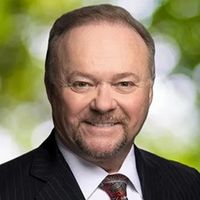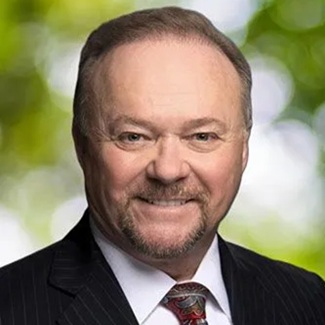How to Use Your Estate Plan to Save Tax Now: A Timely Update
Consider an upstream basis trust and a general power of appointment for an older family member to reduce capital gains taxes on highly appreciated assets.


Profit and prosper with the best of Kiplinger's advice on investing, taxes, retirement, personal finance and much more. Delivered daily. Enter your email in the box and click Sign Me Up.
You are now subscribed
Your newsletter sign-up was successful
Want to add more newsletters?

Delivered daily
Kiplinger Today
Profit and prosper with the best of Kiplinger's advice on investing, taxes, retirement, personal finance and much more delivered daily. Smart money moves start here.

Sent five days a week
Kiplinger A Step Ahead
Get practical help to make better financial decisions in your everyday life, from spending to savings on top deals.

Delivered daily
Kiplinger Closing Bell
Get today's biggest financial and investing headlines delivered to your inbox every day the U.S. stock market is open.

Sent twice a week
Kiplinger Adviser Intel
Financial pros across the country share best practices and fresh tactics to preserve and grow your wealth.

Delivered weekly
Kiplinger Tax Tips
Trim your federal and state tax bills with practical tax-planning and tax-cutting strategies.

Sent twice a week
Kiplinger Retirement Tips
Your twice-a-week guide to planning and enjoying a financially secure and richly rewarding retirement

Sent bimonthly.
Kiplinger Adviser Angle
Insights for advisers, wealth managers and other financial professionals.

Sent twice a week
Kiplinger Investing Weekly
Your twice-a-week roundup of promising stocks, funds, companies and industries you should consider, ones you should avoid, and why.

Sent weekly for six weeks
Kiplinger Invest for Retirement
Your step-by-step six-part series on how to invest for retirement, from devising a successful strategy to exactly which investments to choose.
An upstream basis trust can be used to minimize capital gains on assets sold during your lifetime. This is done by providing an older family member (Mom, Dad or Grandpa) a power of appointment in your trust holding appreciated assets with low or no basis.
A general power of appointment (GPOA) empowers the holder of the power to give away or direct the distribution of your property upon your death. This “power of appointment” provides a step-up in the assets in the trust upon the power holder’s death.
You do not have to inform the power holder (Mom, Dad or Grandpa) that they hold this power. You can also limit the exercise of this power to require the prior written consent of another person who is not related to or subordinate to the power holder. The power itself can be somewhat limited, such as appointing assets to a creditor.
From just $107.88 $24.99 for Kiplinger Personal Finance
Become a smarter, better informed investor. Subscribe from just $107.88 $24.99, plus get up to 4 Special Issues

Sign up for Kiplinger’s Free Newsletters
Profit and prosper with the best of expert advice on investing, taxes, retirement, personal finance and more - straight to your e-mail.
Profit and prosper with the best of expert advice - straight to your e-mail.
Greater care must be taken if the designated power holder lacks capacity when granted or given their power. If so, consider stating that an agent under a durable power of attorney or guardian could act. Note that this would typically mean that the agent is designated in a pre-existing valid durable power of attorney.
Here’s an example
Son buys an office building (or Apple stock) for $1 million. The building or stock is now worth $10 million. If sold, a capital gains tax of 20% to 33.3% might be owed. If held in trust granting Dad a GPOA and Dad dies, the income tax basis is increased to the fair market value as of the date of death. If the building or stock is sold at or around that date, there’s no tax on the capital gain, a tax savings of $2 million to $3.33 million. If the asset is not sold and subject to depreciation, such as a building, the depreciation is now recalculated with a basis of $10 million. This will provide a substantial tax savings even if the building is not sold.
This upstream basis trust was recently discussed at the 2024 Heckerling Institute on Estate Planning, which is one of the premier estate planning and tax planning educational events held nationally each year. We have been utilizing this technique for years. For more information about how this works, please see my article How to Use Your Estate Plan to Save on Taxes While You’re Still Alive!
Related Content
- IRS Quietly Changed the Rules on Your Children’s Inheritance
- Eight Types of Trusts for Owners of High-Net-Worth Estates
- What Assets Should You Put (or Not Put) in Your Trust?
- Four Reasons You Don’t Need a (Revocable) Trust
- Four Reasons Retirees Need a (Revocable) Trust
Profit and prosper with the best of Kiplinger's advice on investing, taxes, retirement, personal finance and much more. Delivered daily. Enter your email in the box and click Sign Me Up.

John M. Goralka is Senior Counsel at CunninghamLegal in Sacramento, California. John joined CunninghamLegal because of the firm's high degree of professionalism, commitment to client service and creative ability to provide solutions. For decades, John has helped thousands of families and business owners protect, preserve and pass on their wealth with confidence. Through The Goralka Law Firm, founded in 1996, Mr. Goralka and his team built a reputation for designing practical, tax-efficient estate plans that truly worked when families needed them most. He is one of the few attorneys in California who is dual-certified as a Specialist in both Taxation Law and Estate Planning, Trust & Probate Law by the State Bar of California Board of Legal Specialization.
-
 Over 65? Here's What the New $6K 'Senior Deduction' Means for Medicare IRMAA Costs
Over 65? Here's What the New $6K 'Senior Deduction' Means for Medicare IRMAA CostsTax Breaks A new deduction for people over age 65 has some thinking about Medicare premiums and MAGI strategy.
-
 U.S. Congress to End Emergency Tax Bill Over $6,000 Senior Deduction and Tip, Overtime Tax Breaks in D.C.
U.S. Congress to End Emergency Tax Bill Over $6,000 Senior Deduction and Tip, Overtime Tax Breaks in D.C.Tax Law Here's how taxpayers can amend their already-filed income tax returns amid a potentially looming legal battle on Capitol Hill.
-
 5 Investing Rules You Can Steal From Millennials
5 Investing Rules You Can Steal From MillennialsMillennials are reshaping the investing landscape. See how the tech-savvy generation is approaching capital markets – and the strategies you can take from them.
-
 When Estate Plans Don't Include Tax Plans, All Bets Are Off: 2 Financial Advisers Explain Why
When Estate Plans Don't Include Tax Plans, All Bets Are Off: 2 Financial Advisers Explain WhyEstate plans aren't as effective as they can be if tax plans are considered separately. Here's what you stand to gain when the two strategies are aligned.
-
 Counting on Real Estate to Fund Your Retirement? Avoid These 3 Costly Mistakes
Counting on Real Estate to Fund Your Retirement? Avoid These 3 Costly MistakesThe keys to successful real estate planning for retirees: Stop thinking of property income as a reliable paycheck, start planning for tax consequences and structure your assets early to maintain flexibility.
-
 I'm a Financial Planner: These Small Money Habits Stick (and Now Is the Perfect Time to Adopt Them)
I'm a Financial Planner: These Small Money Habits Stick (and Now Is the Perfect Time to Adopt Them)February gets a bad rap for being the month when resolutions fade — in fact, it's the perfect time to reset and focus on small changes that actually pay off.
-
 Social Security Break-Even Math Is Helpful, But Don't Let It Dictate When You'll File
Social Security Break-Even Math Is Helpful, But Don't Let It Dictate When You'll FileYour Social Security break-even age tells you how long you'd need to live for delaying to pay off, but shouldn't be the sole basis for deciding when to claim.
-
 I'm an Opportunity Zone Pro: This Is How to Deliver Roth-Like Tax-Free Growth (Without Contribution Limits)
I'm an Opportunity Zone Pro: This Is How to Deliver Roth-Like Tax-Free Growth (Without Contribution Limits)Investors who combine Roth IRAs, the gold standard of tax-free savings, with qualified opportunity funds could enjoy decades of tax-free growth.
-
 One of the Most Powerful Wealth-Building Moves a Woman Can Make: A Midcareer Pivot
One of the Most Powerful Wealth-Building Moves a Woman Can Make: A Midcareer PivotIf it feels like you can't sustain what you're doing for the next 20 years, it's time for an honest look at what's draining you and what energizes you.
-
 I'm a Wealth Adviser Obsessed With Mahjong: Here Are 8 Ways It Can Teach Us How to Manage Our Money
I'm a Wealth Adviser Obsessed With Mahjong: Here Are 8 Ways It Can Teach Us How to Manage Our MoneyThis increasingly popular Chinese game can teach us not only how to help manage our money but also how important it is to connect with other people.
-
 Looking for a Financial Book That Won't Put Your Young Adult to Sleep? This One Makes 'Cents'
Looking for a Financial Book That Won't Put Your Young Adult to Sleep? This One Makes 'Cents'"Wealth Your Way" by Cosmo DeStefano offers a highly accessible guide for young adults and their parents on building wealth through simple, consistent habits.